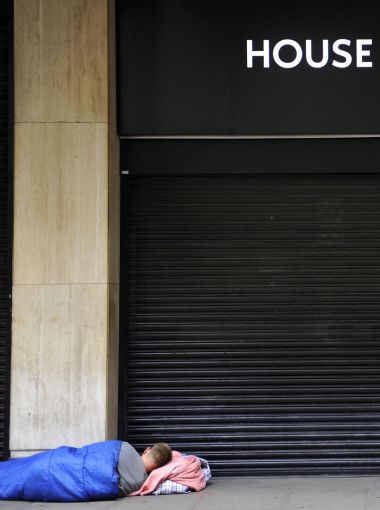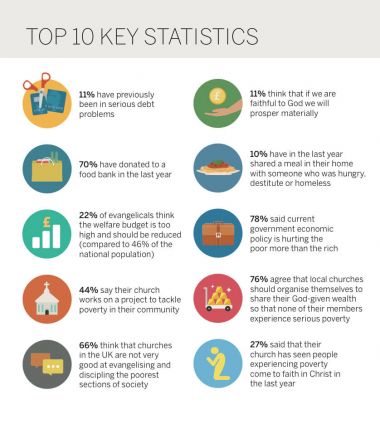Three myths about poverty

Outside observers might be forgiven for thinking that evangelical Christianity has a new cause for celebration. Discussions about poverty pervade the Christian press as we, along with many who profess no faith, offer compassionate care to those hardest hit by the collapse of our economy.
But the Evangelical Alliance report Good News for the Poor? published at the end of May, shows that evangelical Christians, while continuing to give unstintingly, also understand that this is an emergency first response. Solutions to social problems are complex and long-term. Poverty and its causes will still be with us when the current crisis passes.
The prevailing view seems to be that a Labour government would have solved the problem (it wouldn't) or that if we kick the current government hard enough it will change its policies (it won't) and then everything will be OK. If only there was such a simple formula. I know, from experience of right, left and centre governments since I started teaching in the Thatcher era, that there isn't.
But there are many Christian teachers who, like me, have spent their working lives in inner city and tough estate schools, living out kingdom values and believing in the transformational power of education. It's not just a one-off action. It's a day-in, day-out, year-after-exhausting-year commitment. So, based on experience, here are three common misconceptions about social inequality.
First: social mobility is not something to which everyone should necessarily aspire. It lifts people out of their social class and deposits them as legal aliens in an unknown community. To be socially mobile is to deny the place and the people that have nurtured you and to leave the community that has given you your personal identity. You think, act, speak and behave differently. You develop a heightened sixth sense; you watch, you listen, you make sure you understand how to fit in. We are all to a manner born and for most of us, because it defines who we are and where we belong, it's exactly where we want to stay. When they talk about social mobility as the answer, politicians don't reckon on the human cost.
Second: a growing economy is not the only mark of a healthy society, even though the restoration of our economy's global status was almost the single issue of the last election. A body politic worshipping the god Economy will always create a divided and inequitable society. Lest you doubt its deified status, listen to David Cameron this week declaiming: "If we want to be a great success and we want to take on the world and win, then we need to make sure we are making the most of taking on everybody's talents." Politicians should be talking about each of us contributing our talents for the common good. Our human worth is not equivalent to our gross income. It is given to us as human beings made in the image of God.

Third: work is about earning money. This is closely linked to the second misconception. Christians and those of no faith alike get this completely wrong. The point is, work isn't about earning money. That's just an outcome. We work because God created us to work; we work to glorify Him. And that's all of our work: paid or voluntary, running the country or washing the dishes. Nicky Morgan plans to use tax data to inform teenagers of the best subjects to study in school, in order to access the most lucrative careers. What difference would it make if, instead, young people asked "Who does God want me to be? How would God have me glorify Him through my choice of work?"
When the worst of the current crisis has passed, the problem of second and third generation welfare dependency that renders people incapable of work will still be with us. We will still live in a society that values people for the number of shiny new things they can procure, rather than for who they are. We will still implicitly be telling those who possess the least that they are therefore worth the least; that the less they earn, the less valuable they are to society.
Transformational change comes through the relational living of Christians in community. So, churches, support your teachers, health and social care workers. Pray. Get involved. Be where the people are if you want to influence the culture. And remember to include my friends and colleagues in the leafy suburbs – spiritual poverty is social status neutral. Regardless of where we are in the social strata, we all want a just and equitable society and we all have a role to play in creating it through the transformational love of God.
Gill Robins was a deputy head in the primary sector. She is now a writer and speaker, and runs Christians in Education. Follow her onTwitter @CEGill1.











